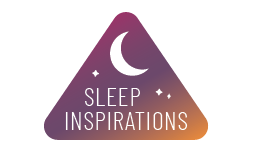There are many pages on this site designed to help you assess whether you suffer from a disorder of sleep. Unfortunately, there is no simple screening technique to answer your question. If you have found this page and read this far, you are concerned about yourself or a loved one.
Be fully honest with yourself. How is your sleep? Are you refreshed if allowed to sleep a full night? Does you bedmate complain about your snoring or moving? Are you excessively tired during your day? Asking yourself these questions is the first step.
Certain medical problems are commonly associated with sleep disorders. Do you have one?
Medical Problems Associated with Sleep Disorders
- High blood pressure
- Excessive body weight
- History of a heart attack or coronary artery disease
- History of atrial fibrillation
- History of transient ischemic attacks or a stroke
Steps to Screen for Sleep Disorders
- What medical problems do you have?
- Ask yourself
- Ask your bedmate
- Ask your family
- Take our Sleep Quiz
- Talk with a professional
What about health monitoring devices as screening tools?
There are several types of sleep monitoring devices available to purchase without a prescription. Two that need to be reviewed include recording oximeters and smart watches.
Recording oximeters are devices that will measure your oxygen levels and save the measurements to a memory for recall later. When Used for measuring oxygen during sleep, it shows levels throughout the night. A quality recording oximeter is a good screening tool. However, without education interpreting the results of the recording is difficult. Not all over the counter oximeters record the levels accurately or frequently enough to be useful as a screening tool.
Simple oximeters show only the oxygen level at the instant it is read by an observer. During a night of sleep, waking to look at the level will usually change the level to normal.
Smart watches and fitness/exercise monitors often have the capacity to report the duration of sleep, its depth, its pattern and oxygen levels. Studies have shown these devices are relatively good at measuring the duration of sleep. Unfortunately, they are not good at sleep depth, sleep quality and oxygen levels. Usually the difficulty is in the method and frequency of the measurements they make.
The best way to assess the quality of your sleep is to just ask yourself, “How do I feel when I wake after a full night’s sleep and during the day that follows?”, not by buying a device to attempt to measure it.
Take our Quick Quiz for Sleep Disorders.
Discuss your questions with your physician.
Last updated: 6/2024
